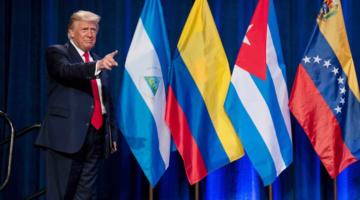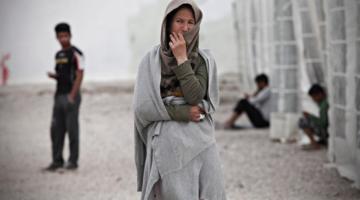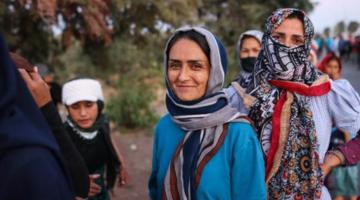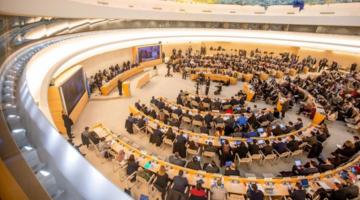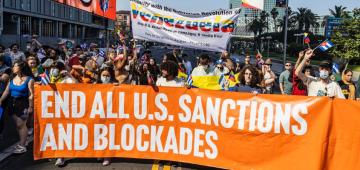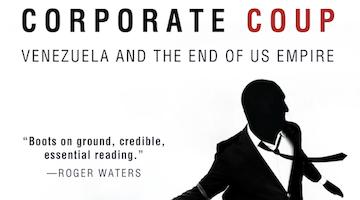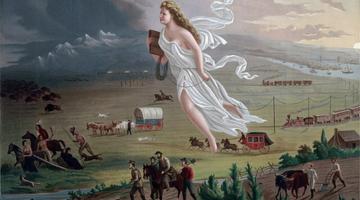A member of the Afghan Red Crescent Society giving medical treatment to a victim following an earthquake in Afghanistan's Gayan district, Paktika province. (Photo by Bakhtar News Agency / AFP)
In this month’s Afghanistan News Update, the Black Alliance for Peace Solidarity Network’s Afghanistan Committee includes an interview with Obaidullah Baheer, a lecturer at the American University of Afghanistan and a visiting scholar at the New School in New York. He leads an aid initiative under the title “Save Afghans from Hunger.”
The Afghanistan News Update was originally published on The Black Alliance for Peace website.
Black Alliance for Peace: Based on your experiences, how would you describe the current situation on the ground in Afghanistan? For instance, how does the refusal by the United States and European allies to lift their sanctions or return stolen assets affect ordinary Afghans?
Obaidullah Baheer: I've spent the last two days trying to track down a photo of an Afghan media presenter selling samosas on the streets of Kabul that had gone viral. This is just a snippet of how drastically life has changed for so many in the country. We are trained to view all suffering to look the same, but there are always cultural differences. Because Afghanistan is a male-dominated society, most of the real victims of hunger are sitting at home and away from the public eye. The International Community [IC] and the Taliban seem to be in a staring competition regarding the issue of recognition, which ties into the frozen assets issue. The IC has a list of demands that they want met before they will consider the Taliban a legitimate government, and the Taliban say that they will not meet other demands unless they are seen as a legitimate government. Amidst this political grandstanding, it is the common man who continues to fall deeper into the vicious cycle of poverty. The situation reminds me of a quote about Afghanistan following the Soviet Union's invasion: "It will take us 20 years to get back to where we were 50 years ago."
BAP: What does Western media get wrong about the Taliban?
OB: The Western media is guilty of seeing the world in monochrome and also of its own sensationalist tendencies. The Taliban aren't an ideal government and neither do they have a great record. However, the world has so many of these governments with records that could easily rank worse than the Taliban in human rights abuses, both in scale and intensity, but they are not necessarily demonized or sanctioned. The economic sanctions imposed on Afghanistan were worse than those imposed on Russia for invading a sovereign state. Afghanistan is struggling to define itself with the rapid succession of changes it has seen over the past four decades. The Taliban are not only an unfortunate political reality, but also represent the disconnect of the larger rural population of the country and its ideals from those of the urban population. The current state could either be another failed attempt at socially engineering the Afghan society by force, or we could stop the violence for once and try to arrive at a synthesis of visions that is bound to evolve with time. There are no short-term ideal outcomes for Afghanistan. There will have to be a painstaking process of organic dialogue that brings forth a sustainable order. It is up to the Taliban whether they will allow for that to happen or risk another fall like that of many regimes before them.
BAP: Can you describe attempts made by the Taliban government to engage diplomatically with neighboring countries to normalize relations? What progress has been made, where have there been setbacks, and what challenges lie ahead?
OB: The Taliban deputy minister was recently featured on Indian media outlets to assure them of the Taliban's desire to normalize relations with India. The Taliban have been torn between trying to appease their fighters by appearing hard on some neighbors, being too accommodating towards groups that might pose a threat to regional countries, and their desire to engage in diplomacy. Afghanistan was in its best economic state after the Second World War, where it had consciously decided not to align itself in the great geopolitical game of the time. It has since then constantly been pushed into alignment in regional and global rivalries. The Taliban will have to be mindful of such a pitfall if they are to have any chance of succeeding in foreign relations.
BAP: Ever since U.S. and NATO troops formally ended their direct military occupation of Afghanistan, Western media outlets have focused considerably less attention on what is happening there. How do Western countries continue to interfere in Afghanistan today?
OB: We experienced the decline of media attention as it unfolded. There is a saying that the U.S. doesn't lose wars, it loses interest. The global media are only interested in what the U.S. sees as important. It might have also been a conscious effort by the Biden team to make the Afghanistan issue go away because they knew they had botched the whole process and caused the eventual fall of a regime. One thing that has been good to see is the lack of appetite for interference in Afghanistan by most other countries. There are certain countries that engage with, and perhaps support, certain violent elements within Afghanistan to serve their own goals, but they are few and we are hoping such behavior will soon cease.
BAP: The humanitarian situation in Afghanistan is quite dire in many ways. Amidst this, where do you see signs of hope for constructing a better future?
OB: Hope is a strong word in the current reality of Afghanistan, but there are plenty of positives from which to take heart. The absence of direct military presence and the lack of appetite for direct interference is positive and has rarely been afforded to Afghanistan in the past four decades. There is also the ending of the protracted war and occupation. This presents an opportunity to transform Afghanistan into something better. Even the strife between the relatively moderate Taliban and the hardliners is a positive sign. At the end of the day, the ball is in the Taliban’s court and they will have to find a common vision for Afghanistan among themselves and then have a dialogue with the people regarding what is sustainable for the whole country. That is, if they want a sustainable order.
To read more of Obaidullah’s work and commentary, please follow him on Twitter.
ADDITIONAL READING
Guantanamo: Afghan National Released After 15 Years in Detention Without Charge
June 24, 2022, by Staff for Middle East Eye
Assadullah Haroon Gul, an Afghan national who was held in detention at Guantanamo Bay for 15 years without any charges, was recently released and allowed to return to Afghanistan after a U.S. federal court ruled his detention unlawful.
Afghanistan: UAE Beats Qatar and Turkey to Sign Airports Deal
May 25, 2022, by Ali M Latifi for Middle East Eye
Afghanistan announced that it had reached an agreement with the UAE in which the latter will manage three airports in Afghanistan, helping to pave the way for international flights to resume there.
9/11 Families and Others Call On Biden to Confront Afghan Humanitarian Crisis
June 6, 2022, by Murtaza Hussain for The Intercept
Family members of victims of 9/11 attacks are among those who continue to call on the Biden Administration to release sovereign funds stolen from Afghanistan.
Afghanistan Earthquake Victims Face Struggles Getting Aid
June 24, 2022, by Mark Gamboa for The Associated Press
The refusal by the U.S. and its European allies to lift sanctions against the Taliban continues to have a devastating impact on ordinary Afghans and has compounded their suffering by making it difficult for humanitarian aid to arrive, following the recent earthquake.
Iran Dispatches Humanitarian Aid to Earthquake-Struck Afghanistan
June 22, 2022, by News Desk for The Cradle
Iran has sent two cargo planes carrying humanitarian aid to the regions of Afghanistan most impacted by the recent earthquake, making it the first government to provide tangible assistance to the country.
Afghanistan Dominates Global Opium Production. The Taliban Is Shutting That Down
June 2, 2022, by The Associated Press
The Taliban leadership is taking action to strictly enforce its ban on growing poppy for opium production, a move that will be acutely felt by many who rely on the crop to sustain themselves.
Millions of Dollars Went Missing As Afghanistan Fell, Watchdog Says
June 7, 2022, by Susannah George for The Washington Post
Interesting and thought-provoking article regarding a recent investigation into millions of dollars unaccounted for during the Taliban takeover, although the imperialist root causes of the corruption are not addressed.
TV Anchor In Afghanistan Now Sells Food on the Streets Under Taliban Rule
June 17, 2022, by Rujuta Thete for The Quint
Mosa Mohammadi, formerly a journalist in Afghanistan, found himself out of work following the Taliban takeover and now sells food on the streets in order to earn a living. His story and image, referenced in this interview, has gone viral as it encapsulates the extreme levels of poverty Afghans face.



